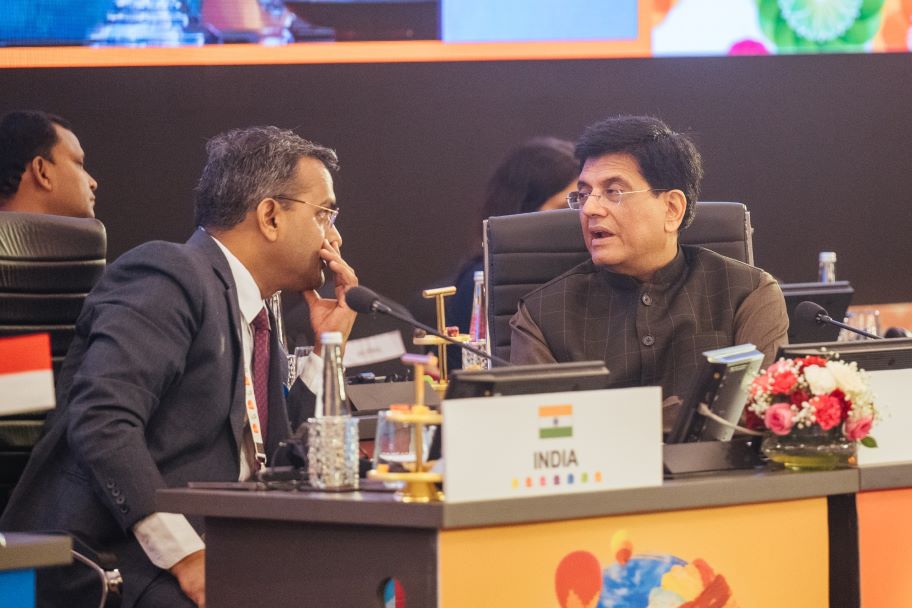Jaipur: The two-day G20 Trade and Investment Ministerial Meeting (TIMM), under India’s G20 Presidency themed ‘One Earth, One Family, One Future’, concluded here on Friday.
A 17-page outcome document was released, highlighting the consensus reached on key issues by all G20 members, except for Paragraph 32 which pertains to the Chair’s summary and refers to the ongoing Russia-Ukraine war.
Odisha cadre IAS officer Krishan Kumar, who is joint secretary, Ministry of Commerce, is the Chief Negotiator for G20 event of India.

Deliberations during TIMM acknowledged the multi-dimensional crisis the world is facing that raises global challenges like macroeconomic instability, food insecurity and disruptions across Global Value Chains (GVCs).
“We agree that trade, along with domestic production, plays a vital role in improving global food security in all its dimensions. This crisis is undermining resilient, sustainable and inclusive economic growth and poses a threat to economic development and to global trade growth, with a particular impact on developing countries and Micro, Small and Medium Enterprises (MSMEs). We reaffirm our commitment to cooperate as we, once again, address serious global economic challenges,” the meeting pledged, keeping in mind that World Trade Organisation (WTO) has predicted growth in cross-border trade will remain subdued at 1.7% in 2023.
“In this regard, trade and trade-related investment initiatives that foster resilient, diversified and sustainable GVCs, promote integration of MSMEs in global trade and encourage the use of technology for facilitating cross-border trade can play an important role in improving prospects for inclusive and resilient growth. Therefore, we will continue to take joint actions to strengthen global trade and investment,” the document stated.
The G20 members agreed on the mapping of GVCs to address concerns about volatility of trade value and reduce overdependence on a few countries for products and services. The COVID-19 pandemic had provided the cue for such action, and the aim was to ensure resilient supply chains that are able to withstand any similar shocks or disruptions in future.
Union Commerce & Industry Minister Piyush Goyal said India stands to benefit immensely from strengthening GVCs, and that the country may witness more value chains moving here to create opportunities for investment and jobs while citing an example of mobile manufacturing.
The second important focus was on MSMEs.
Describing it as a ‘Jaipur call for action’, Goyal said that the aim was to enhance access to information for MSMEs for better integration in global trade along with an effective regulatory cooperation mechanism. The outcome provides for scale-up of databases and portals for MSMEs along with a call for all participating nations to give information relating to trade, market access info and benefits of trade with different countries.
Goyal termed the G20 members’ initiative as “revolutionary” in allowing the growth of MSMEs to become larger companies.
The third area of unanimous agreement laid down 10 high-level principles for the digitisation of trade documents and seamless flow of goods and services to reduce error-prone working ways of the past. The 10 principles are — neutrality, security, trust, interoperability, data privacy, reliability, voluntary sharing of data, collaboration, traceability and scalability.


